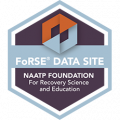Can Heroin Withdrawal Be Deadly?
Heroin has always been one of the most popular drugs of choice for many people. From the time it was first produced by the Bayer Company in 1898 to the current times where it is a major contributor to drug-related overdose deaths, heroin has had a long and controversial history as a substance with a high addiction rate.
Knowledge of the effects and high addiction potential of heroin is more widely known today, with the question “can you die from heroin withdrawal” easily becoming one of the most common internet search queries. Despite this knowledge, however, heroin dependency continues to be a major problem for many countries.
In the US alone, heroin-related overdose death rates figured at more than 13,000 in 2020. This figure accounts for at least 20% of all deaths related to this type of substance. A 2020 report from the National Survey on Drug Use and Health estimates that at least 691,000 Americans aged 12 and above have a heroin substance abuse disorder.
Table of Contents
ToggleCan You Die from a Heroin Withdrawal?
 The short answer to the question can you die from a heroin withdrawal is no, because the withdrawal itself does not cause death. Most, if not all, of the withdrawal symptoms felt by people in heroin detox do feel like they are dying, but in reality, they are not really in any life-threatening situation from the detox process.
The short answer to the question can you die from a heroin withdrawal is no, because the withdrawal itself does not cause death. Most, if not all, of the withdrawal symptoms felt by people in heroin detox do feel like they are dying, but in reality, they are not really in any life-threatening situation from the detox process.
What makes heroin withdrawal particularly alarming and potentially life-threatening are the complications that arise during the period that the withdrawal symptoms come out. One such complication is caused by the persistent vomiting and diarrhea that manifests as one of the agonizing withdrawal symptoms during detox. The combined action of these two symptoms will rob the body of vital fluids, leading to severe dehydration.
If left untreated, severe dehydration could lead to organ failure, causing the body to shut down. In others, it could also lead to cardiac failure, as the body succumbs to the shock of dehydration.
What are the Symptoms of Heroin Withdrawal?
 Cognitive brain function is typically affected when a person is heavily into substance abuse. Teis is particularly true if the substance happens to affect the nervous system directly. The irony in this is that many are still left with enough cognizance to be afraid of the withdrawal symptoms they are sure to suffer should they go into detox.
Cognitive brain function is typically affected when a person is heavily into substance abuse. Teis is particularly true if the substance happens to affect the nervous system directly. The irony in this is that many are still left with enough cognizance to be afraid of the withdrawal symptoms they are sure to suffer should they go into detox.
This is one of the reasons why so many who are into heroin substance abuse fear the process of getting clean. They might not have enough conscious thought left to figure out what they are doing is immensely bad for them, but they do have enough to be afraid of what they would go through once they stop taking heroin.
Most of the withdrawal symptoms of heroin dependence do tend to be immensely uncomfortable and even downright agonizing, although all of these could be managed well with the help of the detox facility staff.
These symptoms include:
- Intense cravings for heroin
- Profuse sweating
- Nausea
- Vomiting
- Severe muscle aches and pains
- Muscle cramps
- Heavy feel all over the body
- Severe pain that seems to originate from bones
- Emotional outbursts
- Insomnia
- Cold sweats
- Clammy sensation of skin
- Runny nose
- Fever
- Chronic Diarrhea
- Tremors
- Nervousness
- Agitation
- Depression
Some of these symptoms could go beyond being simply excruciating and become life-threatening if they happen to cause complications, as is the case of the persistent vomiting and diarrhea.
What is the Timeline for Heroin Withdrawal?
While different people may experience different durations and withdrawal severity during the detox period, there are commonalities in what people experience during the heroin withdrawal timeline.
First 6 - 12 Hours
The initial symptoms will start to manifest within the first six hours from the last time that the person had heroin. The severity, frequency, and duration could largely depend on the length of heroin use and how often the person took it.
Days 1 to 3
After the day, the withdrawal symptoms will start to increase in severity. People who are at particular risk of having complications could start to experience it during this period.
On top of that, the psychological effects of heroin withdrawal could also start at this time, and quickly increase in severity. This is fueled by the growing discomfort, pain, and the cravings for heroin (and whatever else was taken with it, should the person have a polydrug addiction issue as well).
One Week
At one week from the last time the person had heroin, there should be a marked lessening of the withdrawal symptoms, although those who have been using heroin for far longer than others might still feel some symptoms of mild to moderate severity.
Mental issues, however, could still be present, particularly depression, anxiety, and paranoia. Many will experience the return of their cognitive and motor functions to normal levels at this point.
Post-Acute Withdrawal Syndrome
People who have been using heroin for quite some time could experience the withdrawal symptoms for far longer than others, sometimes stretching into months or even a year. This condition is known as the post-acute withdrawal syndrome (PAWS).
For the most part, the lingering symptoms that are felt during the post-acute withdrawal syndrome period are associated with the psychological and emotional symptoms that are present during the detox period. This is why the detox and rehab processes have the active participation of a therapist to provide support for the patient. Post-acute withdrawal syndrome also increases the chances of slipping into a relapse, as the person tries to find some semblance of familiarity in the midst of all the confusion they feel.
Is it Safe to Detox from Heroin at Home?
It should be noted that any kind of detox from any substance should be done within the confines of a detox or medical facility and should not be attempted at home. It is not safe to detox at home or outside of a medical detox facility.
The detox phase comes with withdrawal symptoms, and these symptoms could be anything from being significantly uncomfortable to being debilitated and bed-ridden for some time. In some cases, the withdrawal period brings out some complications in the person due to some existing condition they might have.
This is where the importance of being in a detox facility with medically-trained people stands out. Any danger brought about by complications could be handled better by the professionals in a detox center, as they deal with everything that is relevant to substance abuse disorders.
Detoxing at home could potentially be highly dangerous, particularly if the person is alone, and quite far from the nearest hospital.
What are the Dangers of Self-Detox?

Just the idea of wanting to quit is already a step in the right direction relevant to recovery from a substance abuse disorder. It must be noted, however, that anything that has to do with recovery becomes crucial in that it needs to be carefully planned, correctly executed, and judiciously monitored for progress.
In other words, it needs to be handled by experts who have done it before and follow a scientific structure in their process. While the concept of a self-detox is admirable, its nature is quite risky in that there is no participation of a medical professional in it. There are instances during detox where people might have withdrawal symptoms that are so severe, they could need medical help, which is why detox should only be done in the confines of a clinical detox facility.
To underscore the point, here are a few more reasons why detox needs to be done in a medical facility and not at home:
Withdrawal Increases the Likelihood of a Relapse
For practically anyone who has ever gone through it, detox is a period of great pain and stress. The euphoric and numbing escape from the world provided by substances is now gone, and replaced by the agonizing re-adjustment of the body to its normal and natural chemistry and functioning.
This is a period of stress so great that the effect encompasses the physical, emotional, and psychological aspects of the person. It is so great that many who undergo detox would do anything for the pain to end, including going back to their substances. Without the medical process of a detox facility, it is a simple matter for those doing self-detox to just give it all up and go back to using drugs or alcohol.
Withdrawal is a Period of Bad Personal Decisions
The pain and stress experienced during detox could be more than enough to drive a person to the end of their wits, and as a consequence, make the worst decisions they could ever make. In a medical detox facility, this would not be a problem as there are personnel monitoring the entire procedure and are ready to respond if there is a need to.
Done at home or outside of a medical facility, these bad decisions could lead to serious consequences. It is not uncommon for many people undergoing detox, or at the very least tried to cut back on their substance use, to have suicidal thoughts. Without a medical staff to monitor these developments and react accordingly, it could go very badly for the person trying to do self-detox.
Not All Environments are Conducive to Withdrawals
There are many cases in detox centers where people could go through a psychotic episode while going through withdrawal. This is usually because of the massive psychological and emotional turmoil happening to the person during detox, which is made worse by the physical discomfort that goes with it.
Should this psychotic episode occur outside of a medical detox facility, most people would not hesitate to call the police, and this might actually be a better outcome for the person doing self-detox. Others might take matters into their own hands and make sure the person having a psychotic break is in no condition to hurt others.
Physical Danger of Complications from Withdrawals
Some withdrawal symptoms are so severe that they could actually cause complications or cause so much physical distress that the body goes into shock. An example of this could be seen with some people going through heroin withdrawal. Many suffer horrific bouts of vomiting and diarrhea which leads to dehydration after some time.
The dehydration is so severe that if left untreated, the person could go into organ failure in short order, or suffer a cardiac arrest from the shock of it. In a detox facility, there are clinically-trained people who could deal with this promptly. Those who do this outside of a detox facility would need to go to a hospital as soon as possible or they could die.
These are just a few reasons why people looking to detox from substances such as heroin should not attempt to do it on their own, and instead seek professional help at a medical detox facility. Not only are the potential dangers of self-detox quite serious, but the chances of successfully doing it outside of a detox facility are low to none, and therefore not worth the risk.

MD, Psychiatrist
Dr. Vahid Osman, MD is a psychiatry specialist in Indianapolis, IN.
Dr. Osman completed a residency at Austin State Hospital. He has over 32 years of experience in Psychiatry & Behavioral Health. He is board certified by the American Board of Psychiatry and Neurology.





